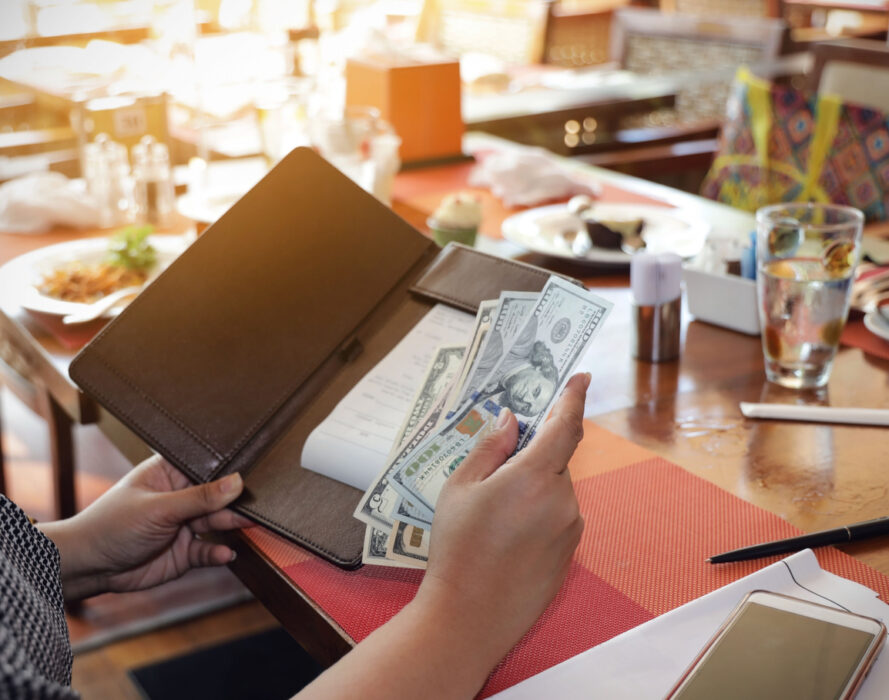Many tourists carry their credit cards wrong and pay the price.

Traveling abroad for the first time feels like stepping into a new world—one full of color, culture, and sometimes, financial confusion. Plenty of first-time travelers assume their trusty credit card will work flawlessly overseas, but that’s rarely the case. In fact, even seasoned travelers still make small credit card missteps that turn into expensive hassles. Whether it’s unexpected fees, security issues, or flat-out embarrassment at a checkout counter, it only takes one mistake to ruin the day.
Using credit cards internationally isn’t rocket science, but it does take a little planning and awareness. Things like not alerting your bank or swiping the wrong card for a purchase can result in declined transactions or extra charges. The worst part? Most of these problems are easy to avoid if you know what to look for. If you’re heading abroad, sidestep these rookie moves and you’ll avoid a lot of unnecessary frustration.
1. Forgetting to notify your bank before the trip.

It’s wild how many people still forget to tell their bank they’re leaving the country. Banks have fraud detection systems that flag any out-of-the-ordinary activity—including overseas charges, as stated by the authors at Comply Advantage. That means your card could get frozen just when you’re trying to pay for your hotel or catch a train. It’s a gut-dropping moment to have a declined card in a foreign country, especially if you’re in a rush or short on cash.
Most banks make it easy now with mobile apps or websites where you can set a travel notice in under a minute. A quick heads-up is all it takes to avoid your card being mistakenly flagged. Some banks no longer require notice, but don’t assume yours doesn’t—double-check before you leave. Even some major issuers still recommend setting travel alerts to avoid accidental shutdowns. A little preparation keeps things running smooth while you’re globe-hopping.
2. Using a credit card with foreign transaction fees.

This one adds up fast. Most credit cards charge around 3% on every purchase made outside the U.S., and you won’t always notice until your statement arrives, as reported by the writers of LendingTree. That means your $50 meal in Rome just became $51.50 for no good reason. If you’re traveling for more than a few days, those fees stack up and drain your budget without warning.
Some travelers think they’ll only use cash or avoid card use, but that’s not always practical. A better move is to apply for a no-foreign-transaction-fee credit card well in advance. Many cards offer this perk and even include travel protections or rewards. There are dozens of no-fee options, including ones with no annual fee at all. Why pay more just to spend your own money? The fix here is simple—get the right card before you pack your bags.
3. Declining the local currency at checkout.

Some shops and restaurants give you a choice—pay in local currency or have your purchase converted to U.S. dollars on the spot. It might feel safer or more familiar to pick dollars, but that’s a trap. It’s called dynamic currency conversion, and it usually comes with a higher exchange rate and sometimes additional fees you never agreed to.
Always choose the local currency when prompted. Your bank will usually offer a better exchange rate than the merchant’s payment processor. Picking your home currency is one of the most expensive mistakes travelers can make at checkout, as reported by Ben Nickel-D’Andrea at Forbes. It’s one of those sneaky costs that seems small in the moment but adds up by the end of your trip. Don’t fall for the convenience. Tap “local currency” and keep more money in your pocket.
4. Carrying only one credit card while abroad.

Relying on a single card during international travel is just asking for trouble. Cards get lost, compromised, or shut down for random fraud checks, and if you’re left with nothing else, your options are limited. A second card can be a backup in emergencies or just a way to avoid running into spending limits on long trips.
It doesn’t even have to be another high-end travel card—just something with a decent credit limit and no foreign transaction fees. Split your cards between your wallet and your luggage or hotel safe so you always have one accessible. In case one gets frozen, the other can keep you going. You’ll thank yourself when your main card suddenly stops working in the middle of a foreign city. Backup plans matter more when you’re far from home.
5. Ignoring the PIN requirement for chip cards.

While chip-and-signature cards work fine in the U.S., some countries—especially in Europe—prefer chip-and-PIN transactions. Certain places, like train stations or kiosks, may require a PIN to complete the purchase. If your card doesn’t have one, it might be rejected completely.
Many U.S. banks don’t automatically assign a PIN for credit card purchases, so you’ll need to request one in advance. This is especially important for self-service locations that don’t accept cash or don’t have staff around. If you’re planning to rely on a card for transportation or ticket machines, having a PIN-enabled card can save you from stressful situations. Keep the PIN written somewhere secure and memorize it before your trip starts.
6. Not knowing your credit card’s travel benefits.

A lot of people never look past the surface perks of their credit card, like cash back or miles. But many travel cards come with helpful extras—things like rental car insurance, lost baggage reimbursement, and emergency medical coverage abroad. If you don’t know what’s included, you could end up overpaying for third-party insurance or missing out on reimbursements you’re entitled to.
Take five minutes to read your card’s benefit guide before your trip. You might be surprised how much protection it actually offers. Knowing how to file a claim, what documents you need, and how long you have can make a huge difference if something goes sideways on the road. These perks are built-in, but they only work if you know they exist and follow the rules for using them.
7. Paying in cash just to avoid card issues.

It might feel easier or safer to withdraw a big chunk of local currency and stick to cash. But not only do you risk carrying too much money, you also miss out on valuable credit card protections. Credit card purchases often include fraud protection, travel insurance, and easier dispute resolution. Cash doesn’t come with any of that.
ATMs can also charge high fees or bad exchange rates, and using your debit card too often can trigger bank holds. While it’s smart to carry some cash for emergencies or small shops, don’t rely on it for everything. Using your card strategically keeps your money safer and often ends up being cheaper when you factor in hidden costs of currency exchanges.
8. Not checking daily purchase limits.

Some credit cards, especially those not used frequently, have preset daily spending limits. These can be triggered by big purchases or a string of transactions in a short period. You might run into trouble booking a last-minute hotel or buying multiple tickets online without realizing your card has temporarily capped you.
Call your issuer before your trip and ask about daily limits, especially if you plan to spend more than usual. You might be able to raise the limit ahead of time or spread out purchases between multiple cards. It’s just one more way to make sure you don’t get stuck abroad without a working card when you need it most.
9. Assuming every place accepts cards.

Not every country is as credit card-friendly as the U.S. In some regions, especially smaller towns or rural areas, cash is still king. Relying too heavily on plastic might leave you scrambling to find an ATM when your card is politely declined by a street vendor or small café.
Research the card culture of your destination. In Japan, for instance, many smaller restaurants still prefer cash, while Scandinavia leans heavily on cards. Knowing the local norm helps you prepare accordingly. Keep some backup cash on hand, and never assume every place takes your preferred card—even in modern cities.
10. Using public Wi-Fi to access financial accounts.

Travelers often log into their banking apps or credit card portals using sketchy hotel or café Wi-Fi, not realizing they’re exposing sensitive data. Public networks can be vulnerable to hackers, especially if the connection is unsecured or doesn’t require a password.
To play it safe, use a VPN when accessing any financial sites abroad. If that’s not possible, wait until you have a secure, trusted connection like your hotel room’s private Wi-Fi. Avoid making payments or transferring money over public networks unless absolutely necessary. A few extra steps can save you from having your card information stolen while you sip coffee in a foreign city.
11. Throwing away receipts without checking them.

It’s easy to get caught up in the travel rush and toss receipts without a second thought. But some places may accidentally—or intentionally—overcharge you. Prices can change due to currency conversion, added tips, or simple human error. If you don’t keep track, you might miss small charges that show up later on your statement.
Hold onto your receipts and compare them to your credit card bill after the trip. It’s one of the easiest ways to spot unauthorized charges or mistakes before they turn into bigger problems. Keeping a small envelope or using a receipts app on your phone can make it less of a hassle. Being aware doesn’t take much time and might save you from chasing down shady charges when you’re already back home.
